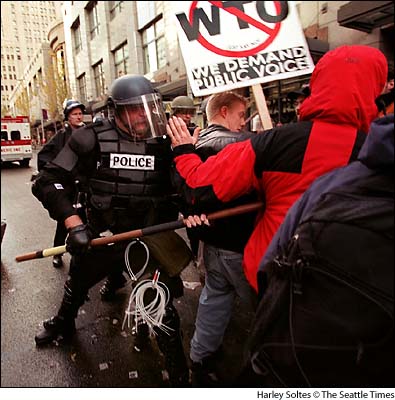Contemporary Theories of Political Economy
Contemporary Theories of Political Economy |
Professor Crawford Chad Frischmann: sections 105 & 106
James Geluso: sections 101 & 103
Jonathan Yantzi: sections 102 & 104
|
This course is designed to introduce students to the modern theoretical works and current intellectual debates in the study of political economy. It examines contending perspectives on the relationship between power and wealth, and more specifically, the relationship between the market and the state. We will cover both the theoretical perspectives on these relationships and the post-war historical factors that have shaped them. The aim is not to pursuade you than any one theory is correct but rather to equip you with the tools for participating in reasoned public discourse with its competing values and claims. This course will help you to understand the source and logic of those competing claims.
COURSE OBJECTIVES
By the end of this course, you should:
- Have a clearer understanding of the assumptions and values that underpin alternative approaches to political economy
- Be able to use these approaches to explain, predict and prescribe a range of political and economic outcomes
- Have a clearer understanding of the different ways to organize production and exchange, and how they have varied over time and space in the 20th and 21st centuries.
- Be prepared to pursue further study or work in related topics such as international political economy, economic development or government and business
- Develop a better understanding of the political and economic forces that shape your personal and professional life
- Be able to acquire, critique and apply new theories to understand complex material in any social scientific discipline
- Be able to communicate findings with more effective written and verbal communication skills
- Be able to discuss the following questions intelligently at dinner parties, with both theoretical and historical sophistication:
What is political Economy? How are Power and wealth related? How can we get rich? What’s good about markets, what’s bad about them? Are good and bad in the eye of the beholder? Can new technology abolish the market? What is rationality? Do you have to be free to be rational? What are the trade-offs between freedom, equality, and community? Who are we? Are we really free? Who should we care about when it comes to allocating resources? Why do some countries "develop" and some don't? What does "development" mean in a globalized world? And by the way.....globalisation proceeds through the unfolding of diversity and freedom of choice - so why is it experienced by so many people as a constriction, an oppression and a loss of freedom?
